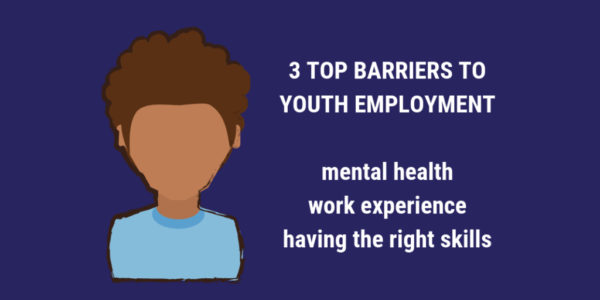A close look at the latest ONS statistics reveals that the number of 16-24 male NEETS has increased in the past year.
In spite of the recent impressive youth unemployment stats, when comparing the months of April-June over the years, 2019 is the first year both male and female youth unemployment has risen since 2012.
The figures:
- 208,000 Male unemployed NEETs for Apr-Jun 2019 = 50.2% of 2019 cohort
- 182,000 Male unemployed NEETs for Apr-Jun 2018 = 46.7% of 2018 cohort
- 122,000 Female unemployed NEETs for Apr-Jun 2019 = 32.3% of 2019 cohort
- 109,000 Female unemployed NEETs for Apr-Jun 2018 = 28% of 2018 cohort
There has been an increase in the number of 16-24 male NEETs in the past year and the number of those unemployed has also risen. There has also been a decrease in the number of 16-24 female NEETs in the past year. However, the number of unemployed NEETs has risen.
There is currently no information available to explain why the total NEET count has risen for men and not women in 2019 – nor why the unemployed NEET rate has risen for both.
There are no definitive explanations for such a complex and recent finding. Historical explanations can help theorise the gap rather than the recent trend, such as the recognition that the criminal population is overwhelmingly comprised of young men, which in turn heavily impacts the ability to enter employment.
In a time when it seems the youth unemployment figures are better than ever, we urge a more sober inspection of the data because the consequences of youth unemployment are wide-ranging.
Skills shortages
Employers are reporting skills shortages specifically linked to the types of traits one would obtain through experience in work such as confidence, management and leadership. The longer a young person is kept out of the workforce, the less likely it is they will obtain the confidence and other life and work skills that would make them desirable to employers.
Many in the Youth sector and across government are recommending employment programmes as preventative, early intervention measures against youth violence.
Mental health
OECD governments increasingly recognise the two way relationship between unemployment and mental health; preventing mental illness and keeping people with mental health challenges in employment or bringing those outside the labour market back into it.
What needs to be done?
Our Youth Census 2019 identified the main barriers to employment for young people as mental health, location and travel, experience, understanding/having the right skills, and competition for jobs.
We therefore think it is necessary to:
- Place young people at the heart of the conversation and policy making as key voices and decision makers in their own futures
- Provide young people with resources and guidance through our free Young Professional membership
- Have schools provide education pathways suited to all students, incorporating vocational pathways and vocational education at Level 2
- Lobby to make work experience mandatory as part of an effort to boost youth confidence in transitioning from education to work
- Lobby for improved public transport infrastructure outside major cities to stimulate local economic growth and enable young people to access opportunities
- Lobby for better access to mental health services for young people with reduced wait times
- Work with employers through our Youth Friendly Employer Mark to understand their needs, provide them with resources and offer advice on how they can better connect with young job-seekers
- Have government support a national strategy that would increase vocational education for children, invest in level 2 apprenticeships, invest in public transport outside London and reform the current education system to include careers education and character building.












